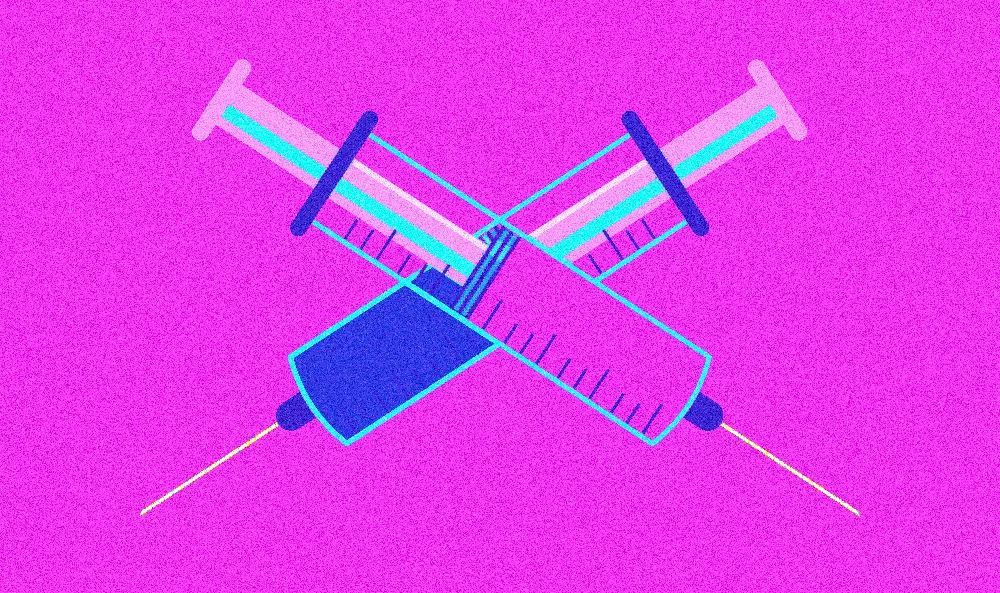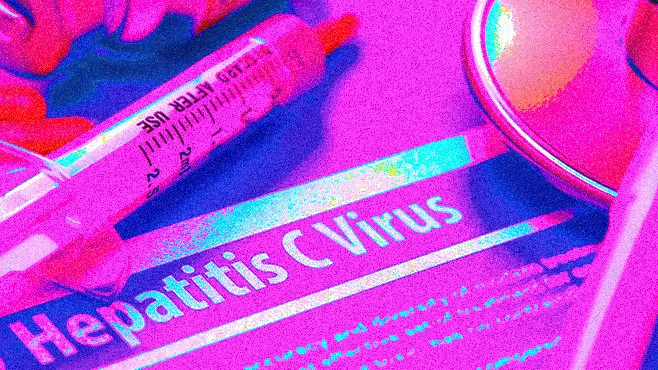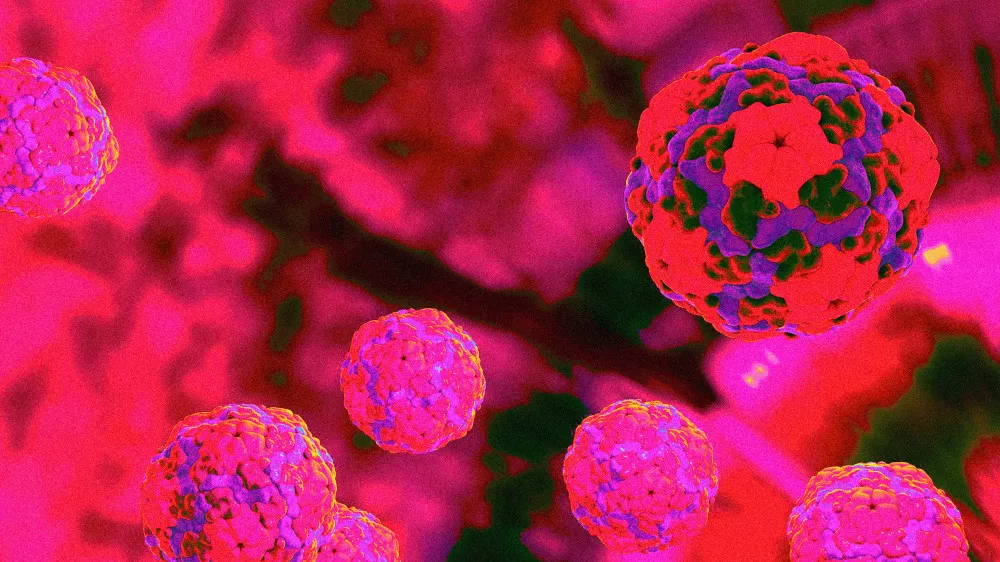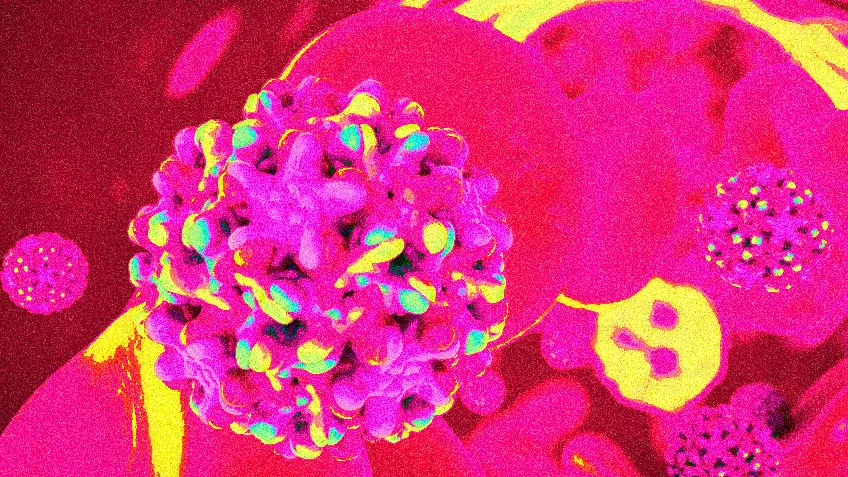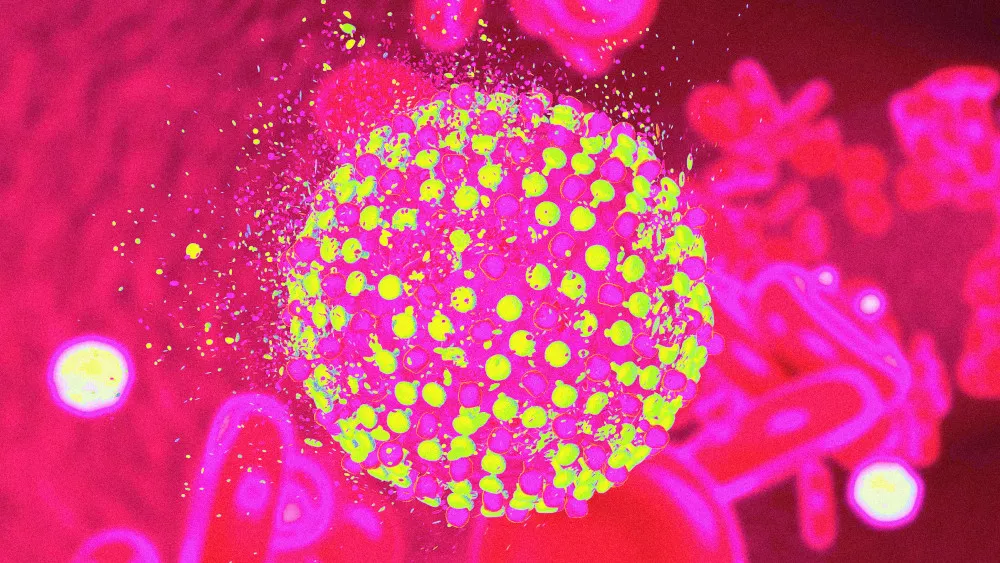A cure for Hepatitis C
19229
The good news is yes, Hepatitis C (hep C) can be cured.
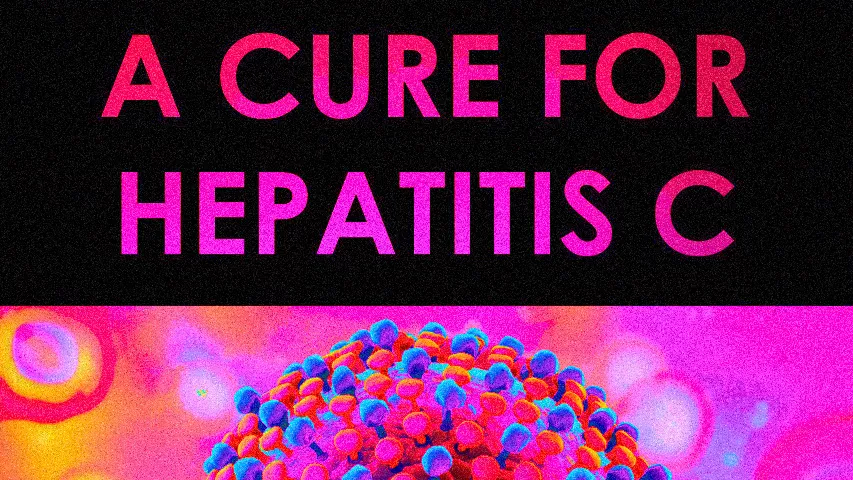
A CURE FOR HEPATITIS C VIRUS
Written by Dr.Deyn Natthakhet Yaemim MD, Last reviewed 10 March 2021
Overview
Hepatitis C is a liver virus that can be cured with oral medications called direct-acting antivirals (DAAs). These effective treatments are taken for 12 to 24 weeks, with a success rate of over 95%. Anyone with chronic hepatitis C, including those with a history of drug use, can receive treatment at clinics like PULSE Clinics.
Starting treatment is straightforward: a doctor will conduct blood tests to assess liver health and prescribe the best medication. Most treatments are outpatient, with mild side effects like fatigue or headaches. A cure is confirmed when follow-up tests show the virus is undetectable 12 weeks after treatment. While antibodies indicate your body has fought off the virus, they don't prevent future infections, so avoiding re-exposure is important.
If treatment isn't successful, don't be discouraged; any reduction in the virus is still beneficial. Staying in touch with your doctor and maintaining a healthy lifestyle is key. In summary, hepatitis C is treatable and curable, so consult a healthcare professional if you think you may be affected.
When to get tested for Hepatitis C?
You should get tested for hepatitis C if you have risk factors such as a history of intravenous drug use, received blood transfusions before 1992, have chronic liver disease, or engage in unprotected sex with multiple partners. It's also recommended for anyone born between 1945 and 1965, as well as those with specific health conditions like HIV. If you have symptoms like fatigue, jaundice, or unexplained abdominal pain, you should seek testing as well.
PCR Multiplex DNA Test for 28 Infections 




Our STD PCR Multiplex test offers advanced technology to detect up to 28 infections, including Gonorrhea, Chlamydia, Syphilis, Herpes Simplex, Trichomonas, and Candida strains, all in one test. It can identify infections in various anatomical areas, such as the throat, urethra, anorectal region, vagina, cervix, sperm, and skin lesions. For urethral infections, the Urine PCR is recommended, while the Throat Swab PCR is ideal after oral sex. Anal Swab PCR is advised for unprotected anal sex, and the Vaginal Swab PCR is recommended for vaginal sex, with staff guidance available for all tests.
| PCR for 28 Infections (STD Multiplex) | Online results | |||
| Same day** | Next day | 3 days | 7 days | |
| Throat | 14,000 THB | 11,600 THB | 10,480 THB | 9,200 THB |
| Urine | 14,000 THB | 11,600 THB | 10,480 THB | 9,200 THB |
| Anal Swab | 14,000 THB | 11,600 THB | 10,480 THB | 9,200 THB |
| Vaginal Swab | 14,000 THB | 11,600 THB | 10,480 THB | 9,200 THB |
| Cervical Swab | 14,000 THB | 11,600 THB | 10,480 THB | 9,200 THB |
| Sperm | 14,800 THB | 12,640 THB | 11,600 THB | 10,080 THB |
| Skin Lesion Swab | 14,000 THB | 11,600 THB | 10,480 THB | 9,200 THB |
| Pooling | 15,600 THB | 13,280 THB | 12,400 THB | 10,800 THB |
| PCR for 2 Infections (Gonorrhea/Chlamydia) | Same day | Next day | 3 days | 7 days |
| Throat | 5,690 THB | 4,990 THB | 3,990 THB | 3,300 THB |
| Urine | 5,690 THB | 4,990 THB | 3,990 THB | 3,300 THB |
| Vaginal and Cervical Swab | 5,690 THB | 4,990 THB | 3,990 THB | 3,300 THB |
| Rectal Swab | 5,690 THB | 4,990 THB | 3,990 THB | 3,300 THB |
| Sperm* | 6,200 THB | 5,150 THB | 4,100 THB | 3,690 THB |
| Skin lesion Swab | 5,690 THB | 4,990 THB | 3,990 THB | 3,300 THB |
All PULSE Clinics in Thailand provide the most comprehensive PCR Tests for 28 infections
to give you peace of mind and fast treatment
How do you get Hepatitis C?
Hepatitis C is primarily spread through contact with infected blood. Common ways include sharing needles or syringes, receiving contaminated blood products (especially before 1992), and less commonly through unprotected sex or from mother to child during childbirth.
What are the signs of Hepatitis C?
Signs of hepatitis C can include fatigue, jaundice (yellowing of the skin and eyes), dark urine, pale stools, abdominal pain, loss of appetite, and nausea. Many people may not experience symptoms, especially in the early stages.
How common is Hepatitis C?
Hepatitis C is quite common worldwide, with an estimated 71 million people infected. About 1 in 30 baby boomers (those born between 1945 and 1965) are affected in the United States, making it one of the most prevalent bloodborne viruses.
How long until Hepatitis C symptoms appear?
Symptoms of hepatitis C can appear 2 to 12 weeks after infection, but many people may not show symptoms for several months or even years.
How to treat Hepatitis C?
Hepatitis C is treated with direct-acting antiviral medications (DAAs), taken orally for 12 to 24 weeks. These medications effectively target the virus and can cure over 95% of cases. Regular monitoring by a healthcare provider is essential during treatment.
What is the difference between Hepatitis B and C?
The main differences between hepatitis B and C are their causes and modes of transmission. Hepatitis B is caused by the hepatitis B virus (HBV) and can be spread through blood, sexual contact, and from mother to child during childbirth. Hepatitis C is caused by the hepatitis C virus (HCV) and is primarily transmitted through contact with infected blood. Additionally, hepatitis B can be prevented with a vaccine, while there is no vaccine for hepatitis C.
Can hepatitis C be cured?
The good news is that Hepatitis C (hep C) is curable. Treatment involves antiviral medications, specifically direct-acting antivirals (DAAs), which are taken orally. These new medications are more effective, aim to eliminate the virus from your body, and have fewer side effects. The goal of treatment is to achieve no detectable hepatitis C virus. Depending on the type of virus, you may need to take the pills once a day for either 12 or 24 weeks. The duration of treatment has decreased over time and is expected to improve further as new drugs become available. Your doctor will monitor your progress and test your blood to confirm the virus is cleared. About 12 weeks after completing treatment, you'll be retested to ensure the virus is completely gone and that the treatment was successful. These new medications cure hep C in over 95% of cases.
Who can access the new cures?
Anyone around the world who is living with chronic hepatitis C can access the new medicines to cure their hep C at Pulse Clinic Bangkok. This is regardless of whether or not you are currently injecting drugs or you are accessing treatment for drug dependency.
DAA treatments are offered to HIV-positive people with HCV coinfection. Hepatitis C virus treatment guidelines recommend everyone should be treated. Since February 2017, DAAs have been recommended in the UK and Thailand for all genotypes. No one should need to use the old HCV treatment with pegylated interferon (PEG-IFN) and ribavirin (RBV) anymore.
How do I get the treatment?
Getting treatment for hep C is straightforward. Just speak with our doctor. They will perform blood tests to assess your liver function, check your HCV viral load, and determine the genotype, which will help identify the most effective medications for you. The prescribed treatment will depend on several factors, including the genotype of your hep C, whether you have cirrhosis (liver scarring), and any other existing health conditions. If you have cirrhosis or other liver-related issues, you may be referred to a liver specialist before starting treatment. You'll receive outpatient care, so there's no need for an overnight stay. Hep C medications are available year-round at PULSE Clinic.
Being treatment ready
The treatment experience varies from person to person. The new medications used to treat most individuals have minimal side effects, allowing you to maintain your normal daily routine. The specific combination of medications will depend on factors such as whether you have cirrhosis and the genotype of your hep C. While it's less common now, some individuals may still need to take the new medications alongside older ones, like ribavirin, and occasionally interferon. Combining these with interferon may increase the risk of significant side effects and could require a longer treatment duration, potentially impacting your work or daily activities. In such cases, it's a good idea to talk to your doctor, nurse, family, or friends about the best time to start treatment and how to manage any potential side effects.
Start HCV treatment at PULSE Clinics
Contact us at info.bkk@pulse-clinic.com or chat on your preferred platform:
![]() +66 65 237 1936
+66 65 237 1936  @PULSEClinic
@PULSEClinic ![]() PulseClinic
PulseClinic
Trust PULSE CLINIC to take care of your health like other 45000 people from over 130 countries. We provide discreet professional service with high privacy. Here to help, not to judge.
What are the treatment medications?
From March 2017, new medicines known as direct-acting antivirals (DAAs) became available in Thailand. The new medicines have proven to be > 90% effective in curing hep C. Treatment will usually be for a period of 12 weeks, but may be for up to 24 weeks for some people. As newer medicines become available, the need to check genotype and use older medicines will likely decrease, making treatment for all people with hep C much simpler.
Since 2014, the following DAAs and fixed-dose combinations have been approved – and more are in development.
- daclatasvir 30, 60, and 90 mg (Daklinza)
- dasabuvir 250 mg (Exviera)
- sofosbuvir / ledispavir 400 mg / 90 mg
- simepravir 150 mg (Olysio)
- sofosbuvir 400 mg (Sovaldi)
- ombitasvir / paritaprevir / ritonavir 2.5 mg / 75 mg / 50 mg (Viekirax)
- elbasvir / grazoprevir 50 mg /100 mg (Zepatier)
The following DAA medicines are currently available in Thailand:
- Harvoni® (Sofosbuvir + Ledipasvir)
- Sofosbuvir + Daclatasvir
- Sofosbuvir + Velpatasvir
How much will I have to pay for treatment?
Even though HCV guidelines now only recommend oral DAA treatment, the high price of these medicines means that in many countries they are only available to people who have advanced liver damage. Luckily hepatitis C treatment is affordable at Pulse Clinic.
The cost will include:
- Doctor consultation fee
- Complete blood test (including HCV viral load, HCV genotyping, complete liver function, and kidney function)
- Medications (prescribed by our doctor)
- Continuous medical follow-ups
Treatment side-effects
The new medicines now being used to treat hep C have a lot fewer side effects and are better tolerated. Side effects may include fatigue, headache, insomnia, and nausea, but they are uncommon and typically mild in severity. It is important to understand what the possible side effects are for any medicines you will be taking and tell your doctor if you are experiencing these symptoms. Health professionals can help reduce your side effects and also help you to manage them.
What is meant by the term ‘cure’?
A ‘cure’ is indicated by a sustained viral response at week 12 after treatment(i). Your doctor will order a PCR viral load test 12 weeks after treatment finishes, and if the results show ‘virus undetectable’ (no virus) it means that you have successfully cleared the virus and there is no hep C in your body. Some doctors will order a further PCR viral load test 24 weeks after treatment.
After treatment
Once you have been cured of hep C, your body will continue to make antibodies for ten years or more. Antibodies are produced as a part of your body’s natural defense system against infections. Having hep C antibodies does not mean you still have hep C. If your PCR test is still negative 3 months after completing treatment, the virus is no longer in your body. It is important to remember that while the antibodies remain in your blood, this does not protect you against getting Hep C again. You should avoid blood-to-blood contact with others (including sharing injecting equipment) so you do not catch Hep C again. Most people will start to feel better during treatment for hep C.
What if I don’t clear the virus?
If you don’t respond to treatment, or relapse in the six months after treatment, it means that you have not cleared the virus, and treatment has not worked for you this time. It’s important not to feel that you have ‘failed’. The treatment has not been a waste of time and effort – even reducing the amount of virus in your liver for a short while provides a big benefit to your health and liver. Try to keep up with healthy eating and lifestyle, and stay in regular contact with your doctor, so that your health is regularly monitored every 6 months. Your doctor may also recommend re-treatment. By staying in touch with your doctor you will also learn of any new developments in hep C treatments.
Start HCV treatment at PULSE Clinics
Contact us at info.bkk@pulse-clinic.com or chat on your preferred platform:
![]() +66 65 237 1936
+66 65 237 1936  @PULSEClinic
@PULSEClinic ![]() PulseClinic
PulseClinic
I have my prescription and I want to order now, TAKE ME THERE !
Loading...
Clinic Locations
Loading...



